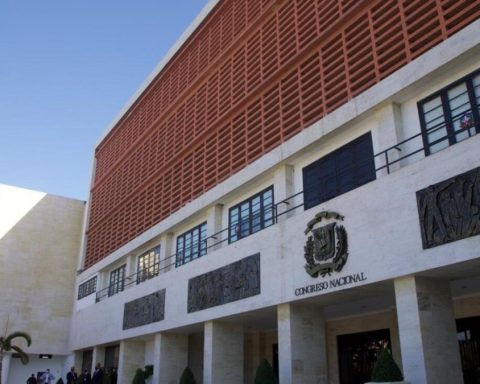The director of the National Immigration Service, Louis Edward Thayeraddressed the increase in the irregular entry of foreigners through unauthorized steps in the country, in addition to communicating how expulsions are being carried out.
In an interview with The Mercury of AntofagastaThayer maintained that “the expulsion processes have not stopped” since the President took office Gabriel Boric.
You may also like:
Referring to the expulsion criteria, the director of the National Migration Service indicated that they continue to apply the parameters of the administration of Sebastian Pinera. “We continue to prioritize judicial and administrative expulsions in which people have committed crimes and have a criminal record. In this sense, we will not change our criteria,” he assured.
“It is important to point out that the expulsion processes have not stopped and that we have been executing them from the moment the government took office,” he added.
expulsions
Going into the details of the expulsions carried out during the current administration, Thayer reported that in these two months 316 people have been expelled from the country through the support of the Investigative Police (PDI). Of the total, 228 were carried out during March and 88 in April, when adding those carried out in January (80) and February (30), the total rises to 427 so far this year.
“That is the pace we are at. We have chosen to carry out the expulsions individually on commercial flights, giving effect to two contracts with travel agencies around 300 million pesos each. This allows us to streamline the process and lower costs. We will continue expelling people, but we will not make a show of it,” he said.
irregular migration
Thayer commented on the increase that has existed in irregular migration through unauthorized steps, which he indicates is due to “the non-existence of regular forms of entry.” “The closure of the border decreed as a sanitary measure meant an almost total closure of the possibilities of regular entry into the country, whether for tourists, people looking for work, refugees, inhabitants of border areas, etc., which left the country exposed to face the mobility of people through irregular routes,” he added.
In this context, he added that “this closure, for health reasons, was added to a policy in which the processing of documents had been very inefficient, making it very difficult to access regular income. The normalization of border crossings As of May 1, it has meant that the land flow will be activated in general terms through these.This does not imply that those people who do not meet the requirements established by the Law have stopped entering through irregular routes (…) For our part, we have already implemented the online application system from abroad, so that people can apply from their countries for authorizations for entry and stay, provided they meet the established requirements.”
He also spoke about the joint work that they carry out with the different authorities to face the migratory crisis that affects Chile. “We are totally willing to support and work collaboratively with regional and local authorities. We necessarily have to find solutions to such complex problems jointly,” she said.
Finally, he criticized the redirection of migrants, since he points out that the process has not been effective because it was not prepared with the conditions for it to be successful. “It is entirely logical to have an agreement with the authorities of neighboring countries to which people are redirected, because otherwise it is a false step. That is why we have raised our concern with the Ministry of Foreign Affairs in order to advance in a dialogue with the Bolivian authorities in order to facilitate the execution of this procedure. In the case of Peru and Argentina, it is working,” he concluded.


















